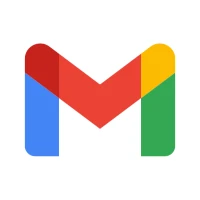Unlocking the Power of AI in Marketing: 5 Game-Changing Benefits You Can’t Ignore
7 min read AI is no longer a buzzword—it’s a marketing game-changer. Learn how artificial intelligence is helping businesses personalize campaigns, automate tasks, improve ROI, and predict customer behavior like never before. June 01, 2025 08:10
In a world where customer expectations are rising and competition is fierce, marketers are turning to artificial intelligence (AI) not just as a tool—but as a strategic powerhouse. Whether you're running a lean startup or managing enterprise-level campaigns, AI can elevate your marketing efforts by delivering hyper-personalized experiences, boosting efficiency, and unlocking deeper customer insights.
So what exactly can AI do for your marketing campaigns?
Let’s break down the top five benefits of AI in marketing that are transforming how businesses attract, engage, and retain customers.
1. Hyper-Personalization at Scale
AI allows marketers to deliver personalized content and experiences at a level that’s simply not possible manually. By analyzing user behavior, browsing history, location, and past interactions, AI tools can:
-
Recommend personalized products (think Amazon-style suggestions).
-
Trigger targeted email flows based on user actions.
-
Customize website content in real-time for each visitor.
The result? Higher engagement, longer session durations, and better conversion rates. Personalized experiences build trust—and trust drives sales.
🔍 Stat Insight: 80% of consumers are more likely to buy from brands that offer personalized experiences (Epsilon).
2. Improved Efficiency Through Automation
Marketers wear many hats—but AI can take some of them off your head. From content scheduling to A/B testing and ad targeting, AI can automate time-consuming tasks, allowing you to focus on strategy and creativity.
AI-powered tools can:
-
Automatically adjust ad bids for optimal performance.
-
Generate social media captions or blog outlines.
-
Schedule posts based on peak audience engagement times.
-
Identify and remove underperforming creatives.
This leads to less manual work, faster campaign execution, and more time for innovation.
🧠 Pro Tip: Use tools like ChatGPT, Jasper, or Copy.ai for fast, on-brand content generation at scale.
3. Better ROI With Smarter Budget Allocation
AI doesn’t just save time—it saves (and makes) money. By continuously analyzing data in real-time, AI ensures your ad spend goes where it matters most.
Here’s how AI drives better ROI:
-
Identifies high-converting channels and audiences.
-
Pauses underperforming ads automatically.
-
Reallocates budgets dynamically across platforms like Google Ads, Meta, and TikTok.
This means less waste, higher conversion rates, and ultimately a stronger return on investment across campaigns.
📈 ROI Boost: AI-powered marketing tools can improve campaign ROI by up to 30% (PwC).
4. Advanced Customer Segmentation
Generic messaging is a thing of the past. AI enables deep segmentation based on behavior, intent, lifecycle stage, and more.
You can now segment customers:
-
Based on real-time behavior (e.g., cart abandoners, frequent buyers).
-
By predicted lifetime value (LTV) or churn risk.
-
By engagement level (e.g., cold, warm, hot leads).
With AI, segments become dynamic—they evolve as user behavior changes, allowing you to run ultra-targeted campaigns that speak to each audience’s unique needs.
🎯 Use Case: Send tailored email campaigns to “high-intent” users vs. retargeting “window shoppers” with special offers.
5. Predictive Analytics for Future-Ready Campaigns
Why react when you can predict? AI uses historical data to forecast future behaviors, enabling proactive marketing strategies.
With predictive analytics, marketers can:
-
Anticipate customer churn and intervene with retention offers.
-
Forecast demand for products based on seasonality or trends.
-
Predict customer LTV to optimize acquisition costs.
-
Spot emerging market segments before your competitors do.
This level of insight empowers marketers to stay ahead of the curve and make data-backed decisions with confidence.
🔮 Future-Proof Strategy: Predictive AI gives you a strategic edge by allowing you to plan campaigns around what’s likely to happen—not just what has happened.
Final Thoughts: AI Is a Marketing Force Multiplier
Integrating AI into your marketing strategy isn’t just an option—it’s a competitive advantage. From personalized user experiences and powerful automation to deeper insights and smarter spend, AI is helping marketers achieve more with less—and faster than ever before.
Whether you're just exploring AI tools or ready to scale, now is the time to embrace the shift. Your audience expects relevance. Your business needs results. AI delivers both.
User Comments (0)
Popular Apps










Editor's Choice









